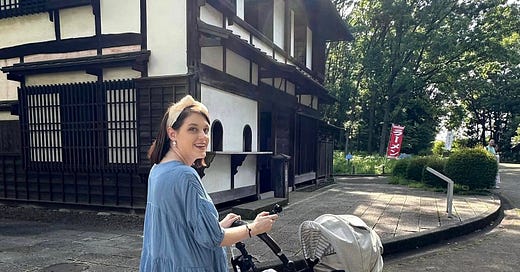When I first became a mother, I found myself caught between two worlds.
One was the fast-paced, pressure-filled world that told me I had to do more, be more, and achieve more to be a "good mom." The other was a quieter world — a world I had glimpsed during my time learning about Japanese culture, a world that invited me to slow down, breathe deeply, and find meaning in the tiniest, most ordinary moments.
In Japan, motherhood is often not seen as a race or a performance. It's woven into the fabric of daily life with a sense of mono no aware — a gentle awareness of life's fleeting beauty.
A child’s small hand grasping yours. The steam curling up from a bowl of miso soup. The first wobbly steps across a tatami floor.
Motherhood, through a Japanese lens, taught me something powerful:
Presence is enough.
Not the Pinterest-perfect birthday party, not the elaborate crafts, not the endless educational activities. Just being there — attentive, loving, slow — was the real gift.
There is a Japanese saying, 「子は宝」(ko wa takara), meaning "a child is a treasure." But it’s not a treasure to be polished and shown off; it's a treasure to be cherished in the everyday moments — especially the unremarkable ones.
This shift changed my motherhood journey.
I no longer feel the constant rush to optimize every minute or measure my worth by productivity. Instead, I try to honor the rhythms of our days: the messiness, the laughter, the tears, and the extraordinary beauty tucked inside the ordinary.
If this resonates with you, you're not alone.
In my upcoming posts for subscribers, I'll be diving deeper into how Japanese philosophies like Ikigai, Wabi-Sabi, and Ichigo Ichie can transform the way we mother — and live.
It's not about adding more to your to-do list. It's about living motherhood with more meaning, and less noise.
I'd love to have you with me on this slower, more intentional path.
[Subscribe for more reflections, practices, and gentle inspiration here.]








